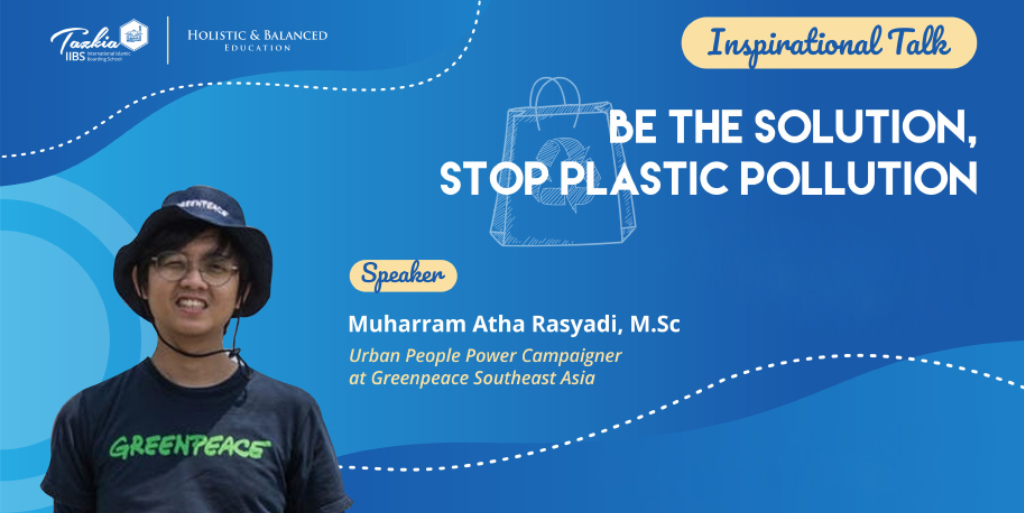Collaborating with Greenpeace through Inspirational Talk, Tazkia IIBS Invited Students to be More Environmentally Friendly
Tazkia International Islamic Boarding School (IIBS) held an Inspirational Talk virtually via Zoom application (10/16) entitled 'Be The Solution, Stop Plastic Pollution' for female students of Tazkia IIBS senior high school. Muharram Atha Rasyadi, M.Sc., Urban People Power Campaigner of Greenpeace of Southeast Asia, attended as a speaker, discussing the best solution to combat plastic pollution in the world.
He explained that the number of environmental damages has occured due to plastic waste, especially ecosystem in the oceans. Including the case of sperm whale, stranded in Sulawesi with plastic waste piles and garbage from the sea hitting mangrove conservation in Muara Angke, Jakarta. There are at least 267 species that have to fight against plastic waste in the oceans.
"The phenomenon is excluded imported waste from developed countries in the USA and Europe, which are unable to manage the garbage themselves," he revealed.


Atha, furthermore, described that plastic pollution can be more risky when the plastic unravels in smaller particles or micro plastics. It is because micro plastics in the soil or in the ocean are potential to mix with other minerals or to be consumed by animals. In one research, micro plastics have been found in fish, salt, bottled mineral water, and human faeces.
"Plastic problem is our problems, in that, community, industry and government have to support each other to encounter," he said.
He told that everyone has crucial role to fight plastic pollution. The public can start with reducing even refusing plastic use in daily activities. The industrial sector, producing the most plastic waste for disposable packaging, has to start replacing it with sustainable materials.
Also, the government has to be more firm and committed with the regulation and law thus they can be optimally implemented in the house-hold and industrial levels.


He emphasised to all parties to stop thinking recycling as the main solution. At least, only 9 - 30% of plastic waste recycled. This number is very insufficient considering that the amount of plastic use and production in the last five years has increased rapidly compared to previous years. In fact, the Reduce and Refuse stages must be placed at the top of the waste processing hierarchy.
"We can reduce plastics production gradually and increase recycling capacity in the same time," he told.
Lastly, Atha conveyed that basically, waste management needs sufficient human resource and full commitment. In the current conditions, the existence of Waste Banks and Scavengers is actually an agent that can ensure that the plastic waste recycling process in Indonesia continues. Therefore, again, the commitment and role of the government are essential in providing adequate infrastructure to support this process.
"We, as society, have to actively participate in the process, even little action can contribute much with persistence and enthusiasm," he concluded.
